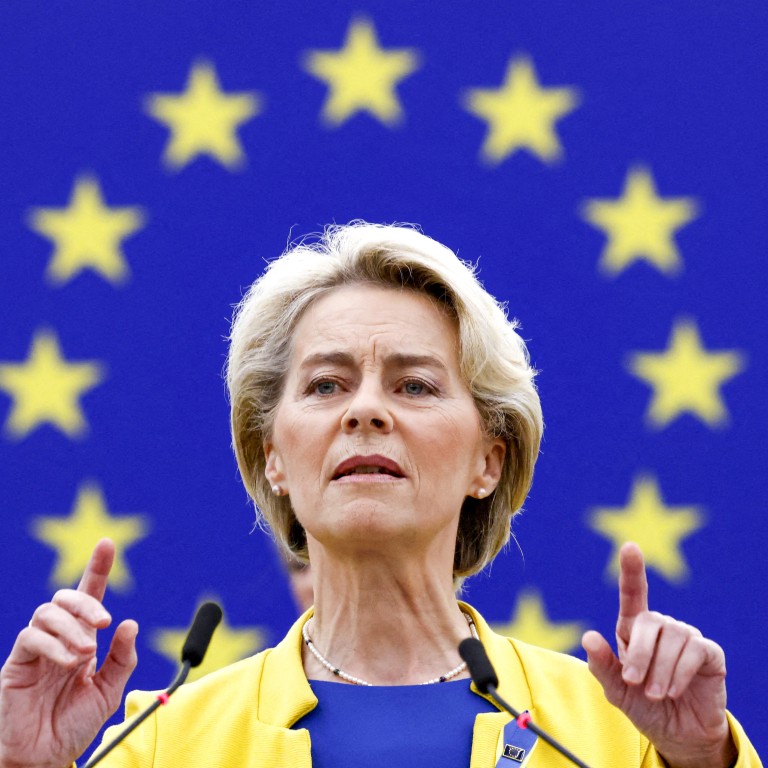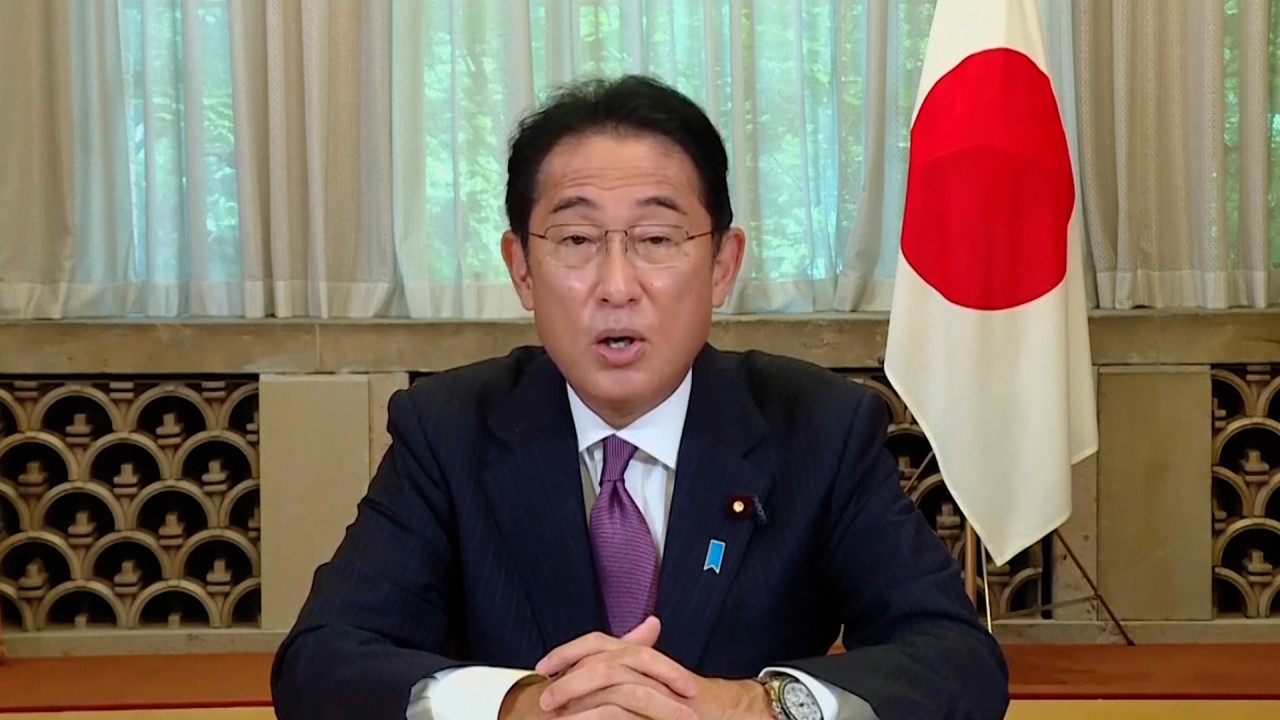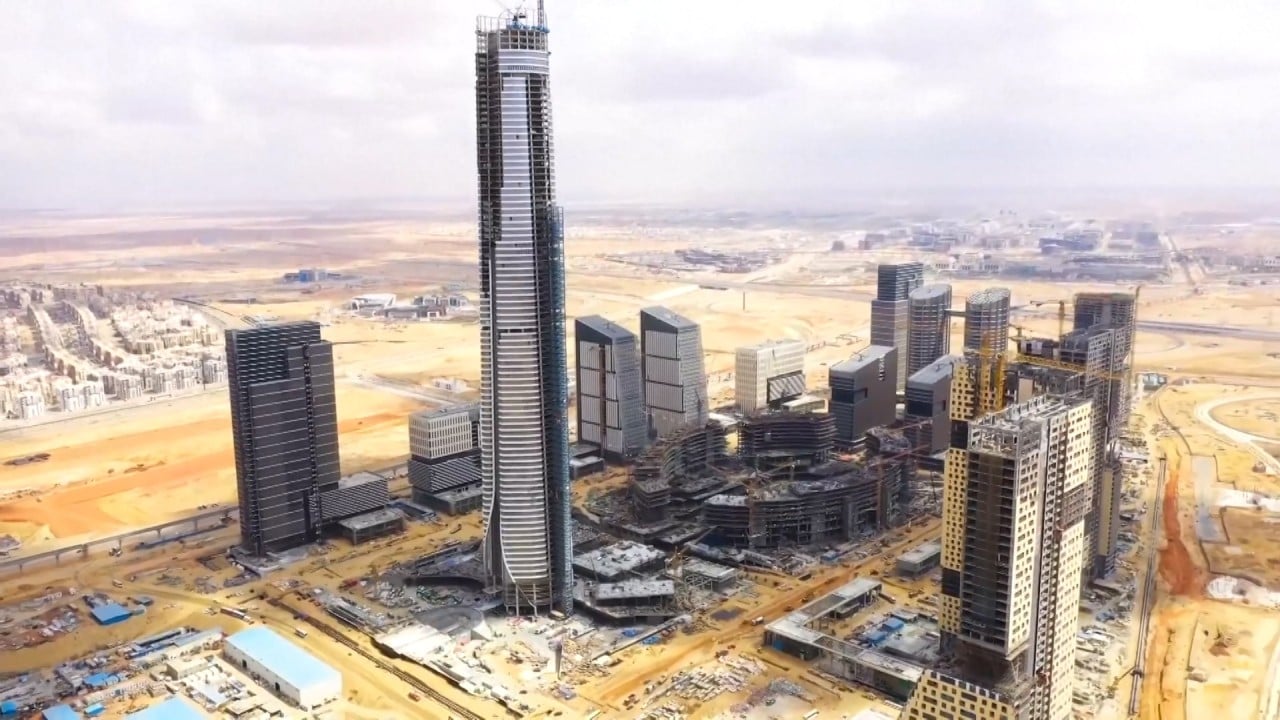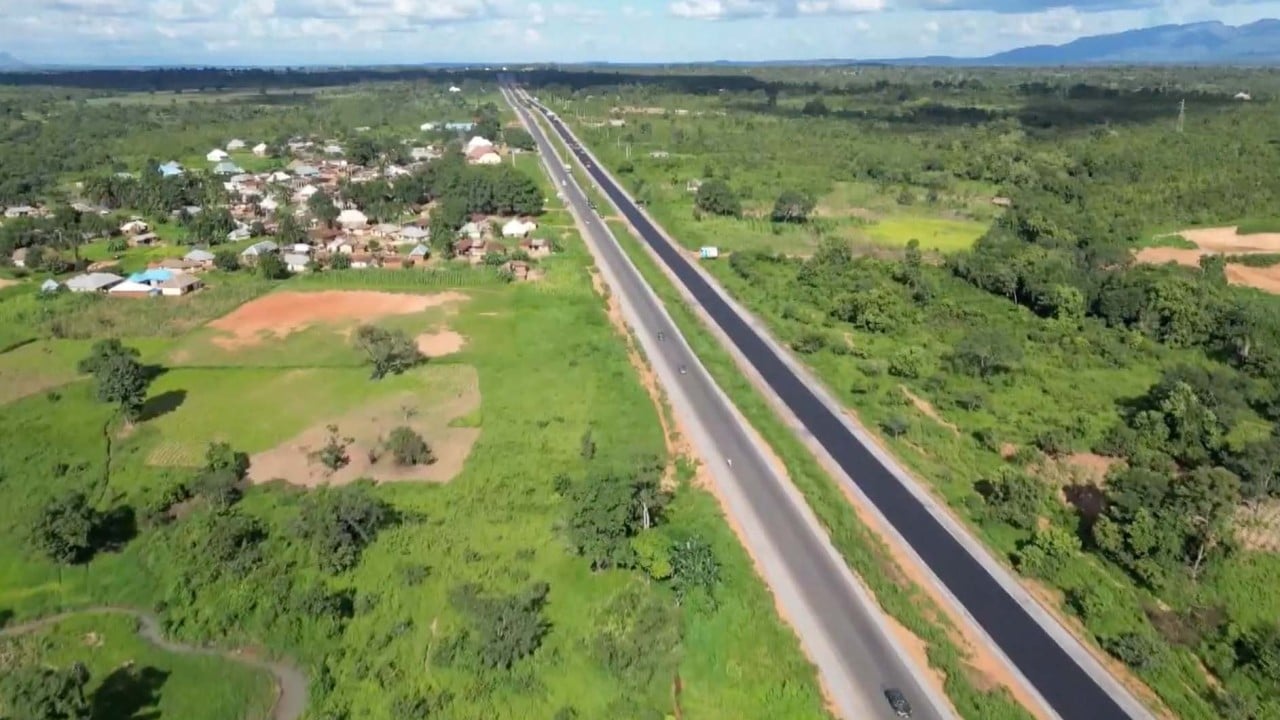
1 year on, EU alternative to China’s belt and road fails to deliver
- Global Gateway has delivered little in concrete projects, while confusion reigns in Brussels and beyond about the initiative
- Up to US$318 billion was promised to build infrastructure in Africa and Asia but it is unclear how much has been disbursed
“We are able to do that. Countries made their experience with the Chinese investments. They need better and different offers,” she said of Global Gateway, a spending drive that promised to mobilise up to €300 billion (US$318 billion) by 2027 for modern infrastructure projects outside the EU.
With some blowback forming towards China’s trillion-dollar plan to connect China with the rest of the world after high-profile allegations of “debt-trap diplomacy”, both Europe and the United States were positioning to offer a different model, grounded in democratic norms, transparency of funding, and with sustainable objectives.
But one year on, observers are growing increasingly sceptical about von der Leyen’s claims.
So far, Global Gateway has delivered plenty of hype, but little in terms of concrete projects, while confusion reigns in Brussels and beyond about what the initiative actually is.
At a hearing in the European Parliament last month, lawmakers pressed officials for details, only to learn that none of the €300 billion would be “new”.
“Global Gateway does not bring new financial means – there is no additional money when it comes to the EU level,” said Vincent Grimaud, an acting director in the commission’s department for international partnerships.
The statement sparked incredulity from members of the parliament.
“There’s no new money. And I’ve always held the view that if there’s no new money, there’s no new policy,” said Barry Andrews, an Irish lawmaker with the centrist Renew group.
“This is a communications exercise. It’s a strategy to put together what was already going to happen and present it as something new. And if our partners are tricked by this, then more fool them.”
Hildegard Bentele, a German member from the centre-right European People’s Party, said she had been trying to find German companies who are “part of this adventure”, but had failed to locate any.
“If I talk to journalists, journalists are asking me what are these Global Gateway projects? If I go on the website of the European Commission, I do not find it – this is really difficult,” she said.
The commission’s efforts to promote the initiative have added to the bemusement.
A recent gala event held in the metaverse to explain the Global Gateway concept to 18-35 year olds was lampooned online after just a handful of users logged on – despite the EU forking out €387,000 (US$410,000) to host it.
“There is a massive drought in East Africa, UNHCR doesn’t have enough funds for food for refugees in camps, etc etc and THIS is what you choose to spend money on?,” wrote one Twitter user under an EU post about the event.
Of the €300 billion promised, it is unclear how much has been disbursed. A spokesperson for the commission said there was no central list of projects available, nor could they put a figure on total spend to date.
“We do not have a list of predefined Global Gateway projects and investments worth €300 billion at this stage, we are taking forward projects and flagship programmes with our partner countries under Global Gateway agreed on a rolling basis,” said Ana Pisonera, an EU spokeswoman.
In an interview with Politico this week, senior EU officials promised that projects would come next year.
“Once we will have rolled out much more substantially the concept of Global Gateway,” it will prove to be an ‘attractive’ option, exactly as Belt and Road has been seen with all the negativity, if I may, with all the problems that it was creating,” Stefano Sannino, secretary general of the European External Action Service, told the publication.
US report dispels China’s Belt and Road Initiative ‘debt trap’ narrative
But analysts remain wary of the comparisons.
“I think it was a mistake to begin with, trying to compete with Belt and Road, because BRI was launched under completely different circumstances, by a completely different country who, at the time, sort of filled a vacuum, proposed a new model, and had capital,” said Francesca Ghiretti, a Brussels-based analyst at the Mercator Institute for China Studies.
“Even China today wouldn’t be able to compete with Belt and Road, so I think it was very unwise to begin with.”
Emmanuel Matambo, research director at the University of Johannesburg’s Centre for Africa-China Studies, said the EU had failed to “advertise as effectively” as Beijing.
“Europe is committed to its investment plans in Africa, but these are accompanied by clichéd attacks on China and other non-European players, thereby undermining the importance of European involvement and its intent in Africa,” he said.
At separate summits, Brussels has pledged €150 billion (US$159 billion) for investments in digital, green, and sustainable projects in Africa and €10 billion (US$10.6 billion) for Southeast Asia, but concrete details on the individual projects are difficult to find.
Rather than specific projects, the EU has published high-level summaries of the sorts of projects it would like to do.
China must focus on emerging nations as US rivalry grows, Beijing adviser says
Promotional materials for Global Gateway’s investments in Africa, for example, say the EU and member states will invest €1.6 billion (US$1.7 billion) in education and training “to meet emerging needs for Africa’s economic and social transformation”.
A further €970 million (US$1 billion) will go towards “youth mobility for Africa”, fostering intercontinental exchanges and “helping to strengthen Africa’s higher education space”.
Pisonera pointed to a recently completed modernisation of a stretch of highway in Kenya, which was built with €30 million (US$31 million) in EU grants, as an example of Global Gateway in action. A further €275 million (US$291 million) will come from the EU and development banks, including the European Investment Bank and KfW Development Bank, a German lender.
But the project predates Global Gateway, with officials confirming that rather than focusing on originating new projects, it would also bring existing ones – including those developed by EU member states – under one banner.
German chancellor warns West against isolating China
“I’m looking at this presentation today and it is a rebadging [exercise] and you know, from a geopolitical point of view, that’s fine. But don’t tell us this is something that it’s not,” said Andrews, the Irish MEP.
In Southeast Asia, the EU again cites “examples of investments” rather than specific projects. These include grid modernisation in Cambodia, sustainable irrigation in Laos, and a hydropower plant in the Philippines.
Asean leaders last week expressed ambivalence towards the projects, saying they preferred trade deals to handouts.
“Asean is not always waiting for help from the EU, but [we] need to see the complementarity of the economies of the two regions,” said Hun Sen, the Cambodian prime minister and chair of the Association of Southeast Asian Nations, after a summit with the EU in Brussels.
EU announces €10 billion package but frustrated Asean leaders seek trade pact
“If we want to build a better partnership, the partnership must be based on equality,” added Joko Widodo, Indonesia’s president. “There must not be one who dictates to the other, and says our standards are better than yours.”
In Africa, disappointment has already set in after the EU failed to deliver on promises made at February’s summit.
In September, only one European national leader showed up at the African Adaptation Summit in Rotterdam, designed to raise funds for Africa’s climate adaptation projects, and that was Mark Rutte, prime minister of the Dutch hosts.
“This leaves a bad taste in our mouths. I am a bit disappointed, to be honest,” said Macky Sall, the African Union president, who was one of six African heads of state present.
Europe’s efforts to counter Russia and China in Africa falling flat
W. Gyude Moore, a senior policy fellow at the Centre for Global Development, said that “it was never clear what was additional about Global Gateway”.
“It draws heavily on existing programmes and initiatives that would have moved forward even if Global Gateway did not exist,” said Moore, a former public works minister in Liberia.
“It was sold as a viable alternative to China’s BRI – an alternative that was driven by values like transparency and sustainability. It has not gone beyond just words.”





